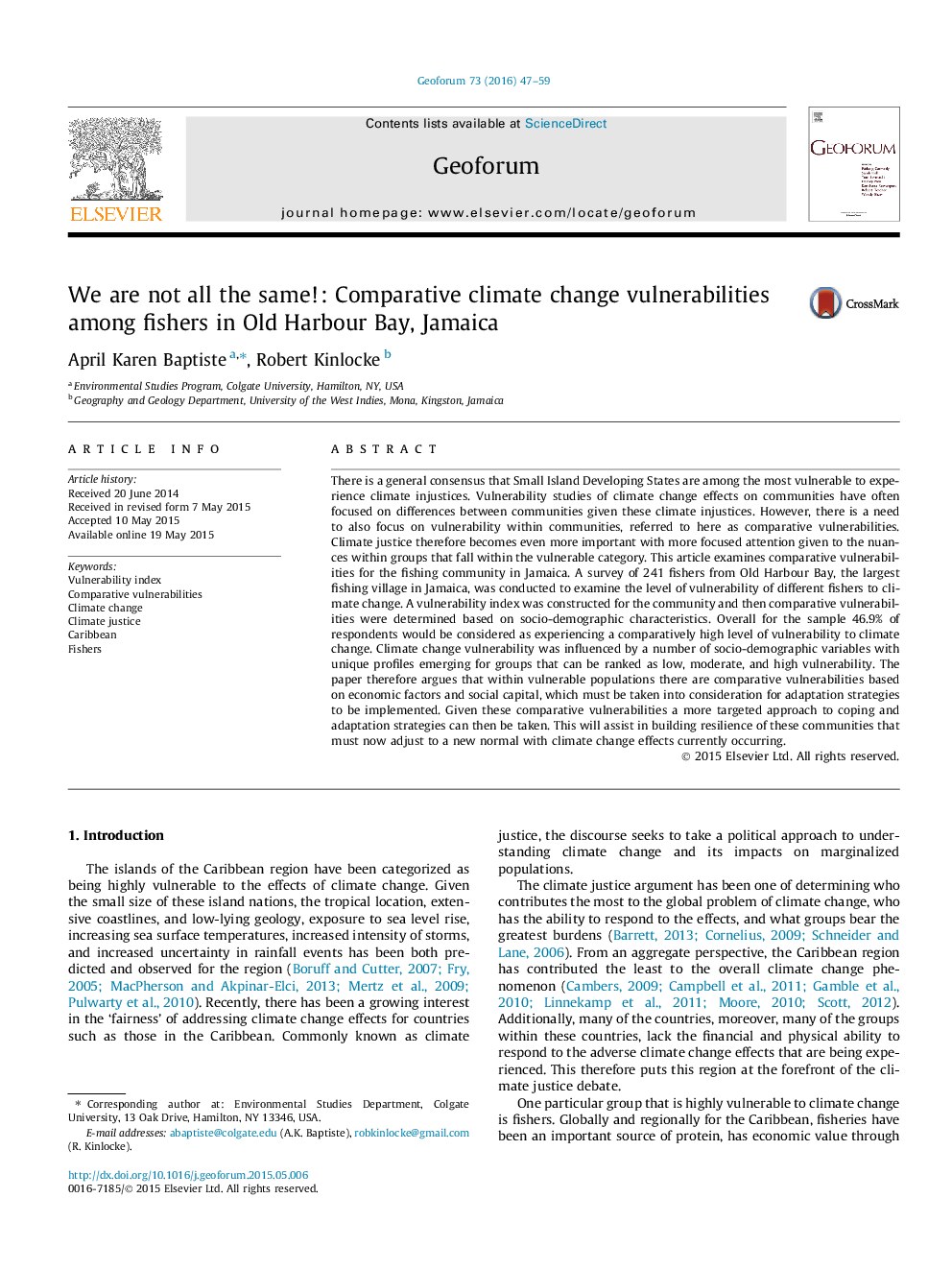| Article ID | Journal | Published Year | Pages | File Type |
|---|---|---|---|---|
| 5073431 | Geoforum | 2016 | 13 Pages |
â¢Climate injustices are acute for the Caribbean region.â¢Comparative vulnerabilities to climate change exists among fishing communities.â¢Material vulnerability access to assets contribute significantly to overall vulnerability.â¢A targeted approach is needed to reduce vulnerability and move toward climate justice.
There is a general consensus that Small Island Developing States are among the most vulnerable to experience climate injustices. Vulnerability studies of climate change effects on communities have often focused on differences between communities given these climate injustices. However, there is a need to also focus on vulnerability within communities, referred to here as comparative vulnerabilities. Climate justice therefore becomes even more important with more focused attention given to the nuances within groups that fall within the vulnerable category. This article examines comparative vulnerabilities for the fishing community in Jamaica. A survey of 241 fishers from Old Harbour Bay, the largest fishing village in Jamaica, was conducted to examine the level of vulnerability of different fishers to climate change. A vulnerability index was constructed for the community and then comparative vulnerabilities were determined based on socio-demographic characteristics. Overall for the sample 46.9% of respondents would be considered as experiencing a comparatively high level of vulnerability to climate change. Climate change vulnerability was influenced by a number of socio-demographic variables with unique profiles emerging for groups that can be ranked as low, moderate, and high vulnerability. The paper therefore argues that within vulnerable populations there are comparative vulnerabilities based on economic factors and social capital, which must be taken into consideration for adaptation strategies to be implemented. Given these comparative vulnerabilities a more targeted approach to coping and adaptation strategies can then be taken. This will assist in building resilience of these communities that must now adjust to a new normal with climate change effects currently occurring.
